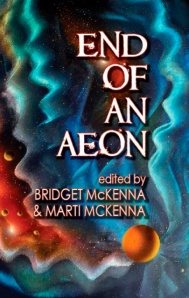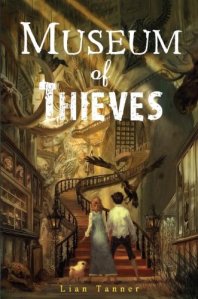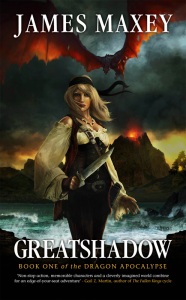I have been featuring fantastic female fantasy authors (see disclaimer) but this has morphed into interesting people in the speculative fiction world. Today I’ve invited the talented Gaie Sebold to drop by. (Further disclaimer, Gaie is published by Solaris, my publisher and, as it turns out, we share the same agent).
Watch out for the give-away question at the end of the interview.
 Q: You write poetry and have won awards in this area. I once ran a workshop where a woman who wrote poetry could not stop herself from writing in rhyming metre. She set out to write a short children’s story and when she got up to read it to us, realised it rolled off the tongue like a poem. Do you find yourself dreaming in rhyme or blank verse?
Q: You write poetry and have won awards in this area. I once ran a workshop where a woman who wrote poetry could not stop herself from writing in rhyming metre. She set out to write a short children’s story and when she got up to read it to us, realised it rolled off the tongue like a poem. Do you find yourself dreaming in rhyme or blank verse?
A: That’s a very interesting thought! I seldom write poetry at the moment, but when I was writing and reading a great deal of it, I certainly had more ideas come to me as poetry or song lyrics (sadly, since I utterly lack any musical ability, the song lyrics never became actual songs). I don’t remember ever dreaming in poetry, but I think that absorbing a lot of it did affect my writing style, and still does. One thing writing in very strict poetic forms did was help me to précis. There’s nothing like attempting a sonnet, or, heaven help us, a haiku, to try and get everything you want to say in a tight space. This may sound odd coming from someone who tends to write novels at about 150,000 words – but without it, they’d be longer, believe me. It’s also left me with a strong belief in the power of the exactly right word in the right place.

Q: I belong to a writing group called ROR who have saved my sanity over the years. I see you belong to a group called The T Party. How did you get involved and what advice would you give a writer who was just starting out and wanted to find or start a support group?
 A: I was looking for a writing group when I first moved to London. I set one up with a friend, but that was largely a poetry rather than a fiction group. I found T Party Writers (we usually write the name that way these days, to distinguish ourselves from, ahem, certain political affiliations) in a local library list of writing groups, because the internet barely existed back then. I discovered a group of people who were all interested in writing genre of one sort or another, who were mainly focussed on professional publication, and with whom I got along very well.
A: I was looking for a writing group when I first moved to London. I set one up with a friend, but that was largely a poetry rather than a fiction group. I found T Party Writers (we usually write the name that way these days, to distinguish ourselves from, ahem, certain political affiliations) in a local library list of writing groups, because the internet barely existed back then. I discovered a group of people who were all interested in writing genre of one sort or another, who were mainly focussed on professional publication, and with whom I got along very well.
I would advise a writer who is starting out to look at what they want from a group. If you write genre, find a genre-focussed group; whether it’s SF/F, literary, or romance; taking a paranormal romance story to a group only to have people go ‘But why does it have to have elves in it?’ is depressing and unhelpful.
If you’re underconfident and just looking for support, there are cheerleading groups, who do less critiquing and more encouragement. Though it may get you writing and submitting more, which is good, I don’t think it does you many favours in the long term. If you’re aiming for professional publication, look for a group that will push you; one that contains some people who are already professionally published, and who are orientated towards that. T Party Writers have a reputation for being pretty tough; which they are. But the purpose is to get people better, to give them the best possible chance of publication. If you’re not ready for tough critique from your writing group, you’re not ready for the crapload of rejections that anyone who is serious about submitting their work for professional publication is going to get. And once your work is out there there will be bad reviews, too. You need to grow a thick skin, and take good advice even if it sounds harsh, and a good crit group will help you do that. Also, learning to critique other people’s work can really help open your eyes to the flaws in your own, and what you can do to improve.
If you are thinking of starting your own group, the same rules apply; what do you want to get out of it, and what are you prepared to offer other people? How many meetings, how often, where, IRL or online, guidelines for joining, submitting and critiquing…all these things need working out. Guidelines for dealing with any problems that may arise are also a good idea.
Q: You are also involved in the Plot Medics, a pair of writers who offer workshops. Here’s their writing philosophy. In Australia we have state Writers Centres which offer a range of workshops and support for writers from those just starting out to the multi-published. I gather there isn’t this level of support in the UK. What led you into the field of writing?
I ran some writing exercises with a friend on a writers’ group weekend, and we both realised we enjoyed the mentoring side. There are so many things about writing I wish I’d known earlier, that I think people can benefit from knowing. I am a somewhat obsessive collector of books on writing, and there is a huge amount of useful information out there, but sometimes people react better to direct interaction, tasks and games, than to just reading these books on their own. The joy of running workshops is seeing people light up when something suddenly makes sense, or they realise how much they can achieve in a really short space of time, or they get an idea and are scribbling madly away at something that really excites them.
There are some excellent workshops and classes in the UK, such as those run by City Lit, and of course the Arvon Foundation; but we felt we could do something with one-off workshops that could help people target one particular aspect of writing where they were having difficulty. And they’re huge fun to do. Exhausting, but fun. If I didn’t have the day job I’d like to spend a lot more time doing them.
 Q: You write short fiction which, if it is anything like your novel, crosses genres. Your stories have appeared in several anthologies including Under the Rose and End of an Aeon. Three stories, Wet Work, A touch of Crystal and Eaten Cold, received honourable mentions in Year’s Best Fantasy and Horror. As you are also a poet, would you say a story/idea has a natural length and medium? Do you sometimes start out writing a poem that turns into a story?
Q: You write short fiction which, if it is anything like your novel, crosses genres. Your stories have appeared in several anthologies including Under the Rose and End of an Aeon. Three stories, Wet Work, A touch of Crystal and Eaten Cold, received honourable mentions in Year’s Best Fantasy and Horror. As you are also a poet, would you say a story/idea has a natural length and medium? Do you sometimes start out writing a poem that turns into a story?
A: I would certainly say that stories and ideas have a natural length. Poems are good for talking about a single idea or theme, in a very crystallised way. In a short story you have more space to explore an idea, and fewer restrictions than in a poem, but you still have to focus. You have to know what your central idea is, the essential thing you want to say, and in the best stories, I think everything else that’s there relates in some way to the central theme. In a novel, obviously, there are still central ideas and themes, but you can have more than one and explore them in greater depth. So yes, stories have a natural length. I’ve read books that felt like a short story stretched out thin, and stories (some in my critique group) where I’ve said, “This is a novel, you do know that, don’t you?” I’ve had it said to me, too; and one short story ended up being expanded into the novel that got me agented. I’ve also been told that a novel idea I’m working on is probably a trilogy. Gulp. (Because I really need another huge project to add to my To Do list…)
I have written poems that suggested they had stories there, but as yet, none has ever turned into one. Sadly they don’t really work as poems, either, so they languish on my hard drive waiting for me to have time or inclination to do something with them.
 Q: Your first novel, Babylon Steel, has just been released. First of all, congratulations! Looking at the blurb:
Q: Your first novel, Babylon Steel, has just been released. First of all, congratulations! Looking at the blurb:
‘Babylon Steel, ex-sword-for-hire, ex… other things, runs the best brothel in Scalentine; city of many portals, two moons, and a wide variety of races, were-creatures, and religions, not to mention the occasional insane warlock.
She’s not having a good week. The Vessels of Purity are protesting against brothels, women in the trade are being attacked, it’s tax time, and there’s not enough money to pay the bill. So when the mysterious Darask Fain offers her a job finding a missing girl, Babylon decides to take it. But the missing girl is not what she seems, and neither is Darask Fain. In the meantime twomoon is approaching, and more than just a few night’s takings are at risk when Babylon’s hidden past reaches out to grab her by the throat.’
It appears to be a mix of SF and Dark Urban Fantasy and the cover reminds me a little of the Three Musketeers. If you had to sum the genre up in a couple of words, how would you describe it?
A: A couple of words? Tricky. High Noir? Sword and Sauciness?
Q: Solaris have bought the sequel to Babylon Steel. Can you give a quick glimpse of what it’s about?
A: It’s taking Babylon away from Scalentine to another plane, to fulfil a promise she made in the previous book. She’ll be trying to stop a civil war, prevent an assassination, stay out of jail and keep her business from descending into bankruptcy. She’s a busy girl.
![Sebold-BabylonSteel-PhoneboothCard_thumb[1]](http://writersagainstobscurity.files.wordpress.com/2012/02/sebold-babylonsteel-phoneboothcard_thumb1.jpg?w=192) Q: In a review of Babylon Steel on SFX, the reviewer said: ‘Sebold has a flair for storytelling. Her world is a cross-planes affair whose main setting is an interdimensional crossroads. It might be all sparkly wish-fulfilment on the surface, but it has a believable seaminess, while its tough lead has plenty of good reasons to be the way she is’ He also added: ‘Fun and fast, you’ll enjoy this if you appreciate the better end of female-friendly fantasy.’ That’s a great wrap, Gaie. Would you describe your book as being oriented for female readers? Does it worry you that a male reader might not pick it up?
Q: In a review of Babylon Steel on SFX, the reviewer said: ‘Sebold has a flair for storytelling. Her world is a cross-planes affair whose main setting is an interdimensional crossroads. It might be all sparkly wish-fulfilment on the surface, but it has a believable seaminess, while its tough lead has plenty of good reasons to be the way she is’ He also added: ‘Fun and fast, you’ll enjoy this if you appreciate the better end of female-friendly fantasy.’ That’s a great wrap, Gaie. Would you describe your book as being oriented for female readers? Does it worry you that a male reader might not pick it up?
A: I was, obviously, pleased with the review, but that phrase about ‘female friendly fantasy’ did give me pause. Yes, I do hope the book is female friendly, in that Babylon is a tough, confident female lead I hope women can like and identify with. But from the responses I’ve had, men like her too (actually she’s been described as ‘blokish’. This was intended as a compliment.) I know there is a truism that women will read books with both female and male leads, whereas men won’t read books with a female lead; I hope most male fantasy readers aren’t that narrow minded. Certainly the ones I know aren’t.
Q: I was prompted to start this series of interviews because there seems to be a perception in the US and the UK that fantasy is a bit of a boy’s club. Do you think there’s a difference in the way males and females write fantasy?
A: I find that perception terribly frustrating. I know loads of women who read and write fantasy; who play fantasy computer games, who do fantasy LARP, (Live Action Role Play). And it’s not all twinkly vampires and sexy werewolves, either. There’s a huge amount of gritty, intelligent, grown-up fantasy written and read by women. The same goes for SF.
As to a difference in the way the genders write fantasy; hmm, let’s step carefully into this minefield, shall we? I think if there is a difference it’s not confined to fantasy. Yet, increasingly, as women feel freer to write about whatever subjects, in whatever genres, they choose, I’m not really sure there is a difference. It would be possible to suggest that more women write more character-focussed fiction, and more men write more plot-focussed fiction; but one can find so many examples where the opposite is true. I do think that sometimes we can end up writing to fulfil societal expectations of what women should talk about, what men should talk about, what people of a particular race or social strata should talk about. This, sadly, creates unnecessary limitations for the writer and reduces the possibilities available to the reader. The more people break out of that, whatever the genre, the better.
Q: Following on from that, does the gender of the writer change your expectations when you pick up their book?
A: I can honestly say, not so far as I am aware. If I’m browsing, I look at the covers; if I don’t recognise the name of the author, I will read the blurb and the first few pages. Whether the book grabs me or not has nothing to do with the gender of the name on the cover. I’ll clock it once I know whether or not I like their writing, not otherwise.

Q: And here’s the fun question. If you could book a trip on a time machine, where and when would you go, and why?
A: Oh, that’s a tough one! I would love to visit Ancient Egypt (I’m actually going to Egypt for the first time later this year, I can’t wait). It was a fascinating society, highly stable for an extraordinarily long time largely due to its geographical location, with the corollary that it was also deeply conservative, with a positively train-spottery obsession with this massively detailed idea of the afterlife. Yet they had, at some periods, some surprisingly modern attitudes in terms of women owning property and having some autonomy. To visit them and get a perspective on their extraordinary obsession with the afterlife, and then to spend some time in Victorian England which was also deeply conservative in some ways, and a time of high-speed, intense change in others, and which had its own highly complex and varied attitudes to death, mourning and the afterlife – that would be interesting.
I’d also like to explore the early European Celtic societies, the Norse, the Babylonians…oh, there are so many places/times I’d like to go.
But I’d probably want to be disguised as a man a lot of the time just so I could access those areas of society denied to women; and I would definitely want to take antibiotics, anaesthetic, reliable contraception and various other life-saving anachronisms (such as my own personal dentist). And be a lot better at fighting than I am in real life.
Give-away Question:
Q: Someone says to you: “I’ve found a gateway to Faerie. We’re leaving in ten minutes, you coming?”
Would you go, and what would you pack?
Follow Gaie on Twitter: @GaieSebold or follow Babylon @Babylon_Steel
Follow Gaie on GoodReads.
Find Gaie on Facebook
See Gaie’s Blog.
Gaie also has a blog with writer Dave Gullen on writing and gardening.
 Just wanted to add a big thank you to Solaris and Clint Langley for these brilliant covers!
Just wanted to add a big thank you to Solaris and Clint Langley for these brilliant covers!


















![Sebold-BabylonSteel-PhoneboothCard_thumb[1]](http://writersagainstobscurity.files.wordpress.com/2012/02/sebold-babylonsteel-phoneboothcard_thumb1.jpg?w=192)

